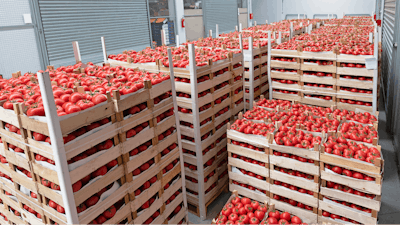
WASHINGTON (AP) — U.S. wholesale prices rose 0.4% in May, led by a gains in the cost of food and energy.
The Labor Department said Thursday that its Producer Price Index, which measures inflation pressures before they reach the consumer, showed an increase after three straight months of declines. Those declines had reflected in part the steep drop in demand caused by government-ordered shutdowns to deal with the coronavirus.
The cost of food rose a sharp 6%. Food costs have been rising due to high demand from Americans cooking more at home, but also because of lost production following virus outbreaks at food processing facilities. Energy prices, which had fallen for three straight months, increased 4.5%.
Over the past year, wholesale prices have fallen 0.8%. Core prices, which exclude energy and food, were down 0.1% in May up 0.3% over the past 12 months.
The report on wholesale prices followed news Wednesday that consumer prices at the retail level fell 0.1% in May, the third straight monthly decline.
The Federal Reserve on Wednesday announced that it was keeping its benchmark interest rate at a record low near zero and signaled that it could remain there through 2022 to help the economy recover from the coronavirus-induced downturn.
The Fed has the leeway to keep interest rates low because of the absence of inflation pressures. Some economists had expressed concerns that the country could be flirting with a destabilizing bout of deflation but with the gain in wholesale prices in May, they said this was less of a concern.
“The stronger-than-expected rise in producer prices in May suggests that the worst of the deflationary impulse from the coronavirus crisis is behind us,” Lydia Boussour, senior economist at Oxford Economics, said.
For May, the 6% increase in food costs was led by a 40.4% surge in meat prices.






















